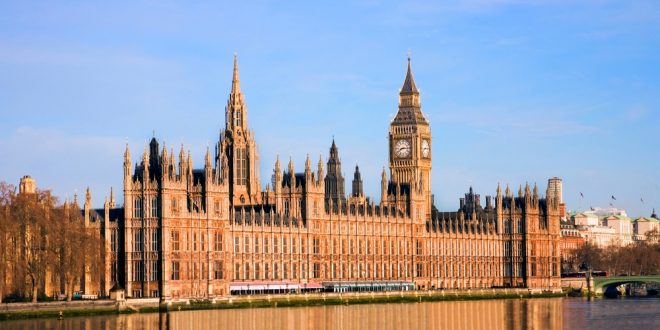As the gambling industry wakes up to the announcement that the Department for Digital, Culture, Media and Sport (DCMS) will be launching its review into the 2005 Gambling Act, the news has been largely welcomed by various different stakeholders from across the sector.
The review, which is expected to result in the biggest reform of UK gambling laws since the Blair administration, will prioritise consumer safeguards, advertising standards, and online protections.
Moreover, this new review – which some politicians have described as a ‘once in a generation opportunity – will make good of Boris Johnson’s 2019 pledge to bring gambling legislation into the digital age.
While it will face scrutiny from DCMS officials, the UK Gambling Commission (UKGC) is likely to play a central role in the enforcement of any changes.
A spokesperson for the regulator believes that the review will give them a chance to ‘build on the progress we have made to protect players and the public’.
They said: “We welcome the government’s Review of the Gambling Act which will also consider our powers and resources. Our job is to make gambling safer and the Review creates an opportunity to build on the progress we have made to protect players and the public – such as strengthened age and identity verification, strict new guidance for so-called VIP schemes and banning gambling with credit cards.
“As the statutory adviser to the Secretary of State we look forward to contributing our advice to help with the government’s Review and we will continue our close working relationship with DCMS as the Review proceeds. We’ve made it clear to gambling operators that we will continue to work at pace to take action to protect consumers while the Review of the Gambling Act is underway.”
Having been a leading voice in improved social responsibility standards, the Betting and Gaming Council (BGC), UK gambling’s unified trade body, maintained its previous stance that evidence-led insights and data should lead progress on regulatory reforms.
The BGC has led a number of initiatives throughout 2020, independent of the government legislation, and its members have already undertaken sweeping reforms to its code of conduct and social responsibilities.
According to Michael Dugher, Chief Executive of the BGC, the review will provide ‘an important opportunity to drive further changes on safer gambling introduced by the industry in the past year’.
“As the standards body for the regulated industry, we strongly welcome the launch of the Government’s Review,” Dugher said. “We called for it to be wide-ranging and evidence-led, and it provides an important opportunity to drive further changes on safer gambling introduced by the industry in the past year.
“Problem gambling may be low at around 0.7% and as the DCMS has said there is no evidence that it has increased in the last 20 years, but one problem gambler is one too many. So I hope Ministers will focus in with laser-like precision on problem gamblers and those at risk. The Government must ensure that any changes do not drive people to the unregulated black market online, where there aren’t any safeguards to protect vulnerable people.”
Confirmed alongside the news of the review was an announcement that the government will raise the minimum age to play the National Lottery from 16 to 18 from October 2021, in a move which it believes will help ‘protect young people from gambling related harm’.
Working alongside the UKGC and Camelot, the government will roll out the new age limit ‘as quickly as possible’, with online lottery sales to 16 and 17 year olds banned from April 2021.
However, responding to the announcement, the BGC CEO urged the government to carefully consider the financial contributions that the betting industry makes, warning that too many restrictions will have detrimental effects on sponsorship agreements and the tourism industry.
Dugher continued: “Our members do not allow betting by under-18s, so we welcome in particular confirmation of the Government’s decision to ban 16 and 17-year-olds from playing the National Lottery. It’s got to be one rule for all.
“The review must also take account of the huge economic contribution made by the betting and gaming industry, which employs over 100,000 people. This includes £8.7 billion a year in Gross Value Added and over £3.2 billion to HM Treasury in tax.
“In addition, horse racing receives over £350 million per year through the horse racing industry levy, media rights and sponsorships, while betting companies spend over £40m a year on the English Football League and its clubs.
“Other sports, including rugby league, snooker and darts also receive millions of pounds in sponsorship from our members, while casinos contribute over £120 million to the tourism economy each year.
“Millions of people enjoy an occasional flutter on sports, on bingo, on the Lottery, in casinos and online. I hope that everyone has their say in the Review – including millions of customers who enjoy betting safely, as well as the hardworking men and women employed in the industry.”
So what do the betting companies themselves think of the news? While the prospect of a review has been on the cards for some time, operators still remain emphatic on an evidence-led approach to proposed changes.
Flutter Entertainment is expected to come up against a series of regulatory changes in its home markets of Ireland and the UK, so it comes as no surprise that they are looking forward to playing an active role in working alongside the government to supply their ‘evidence-based findings’ into the review.
Ian Proctor, Executive Chairman of Flutter’s UK & Irish division, said: “This is a really significant moment and I welcome the launch of this review. It will allow us to build on recent efforts by the industry to improve customer safety for the millions of people who enjoy our products and in particular help the small number who have experienced problems with their gambling.
“We must consider all options on the table and take forward policies where the evidence shows they will achieve meaningful, beneficial change that genuinely helps those that need it. We look forward to working with the Government on this and feeding in our evidence-based findings into the review.”
Ulrik Bengtsson, CEO of William Hill, also believes that the review will give operators the chance to work alongside the government to ‘strike the right balance’ between player protection and enjoyment of the gaming experience.
Reaffirming the position that the DCMS review must be evidence-led, he said: “William Hill welcomes the gambling review which the Government has launched today. Our industry is more committed than ever to keeping gambling as safe as possible and we have been getting on with raising standards. Whether it’s ensuring under-18s and vulnerable people are not exposed to gambling adverts or identifying at-risk players through technology, we are continually driving up standards to ensure gambling remains a safe and fun pursuit for millions of people in the UK.
“We look forward to engaging with the Government throughout the review to ensure that any new regulations work alongside progress made by our industry and provide clarity and certainty for customers, operators and all those who work in the sector. It is important that the review is evidence-led, strikes the right balance between protecting the vulnerable and the continued enjoyment of the many tens of millions who happily place the occasional bet, as well as taking a critical look at the growing risks of the black market where there are no consumer protections.”
While the political rhetoric for a wide-ranging review has been apparent, it comes as no surprise that this review has received a positive response from the All-Party Political Group on Gambling Related Harm (GRH APPG).
Described by the cross-party group as a ‘once in a generation opportunity’, undertaking sweeping reforms of gambling legislation has long been overdue.
Heading up the GRH APPG as its Chair, Swansea East MP Carolyn Harris played a key role in the decision to impose a maximum £2 stake on Fixed Odds Betting Terminals (FOBTs), and in recent months, has made her opinion heard on the use of credit cards and advertising across the betting sector.
Responding to the news, Harris remarked: “I very much welcome the launch of the Gambling Review, something which I and many others have long been calling for. I hope we are at a turning point in the reform of our wholly outdated gambling legislation. Too many families are impacted by gambling related harm and we must protect those most at risk through legislation and policy change.
“Our current legislation is analogue legislation in a digital age, online gambling is unregulated in many areas and mandatory deposit limits and affordability mechanisms are essential. Gamblers need an Ombudsman to support redress and statutory levy must be put in place to support research, education and treatment. The Regulator must also be overhauled. This is a once in a generation chance to improve much needed gambling regulation in this country and change cannot come soon enough.”
This sentiment was echoed by Rt Hon Sir Iain Duncan Smith MP, Vice-Chair of the GRH APPG, who believes that the reform will bring ‘balance’ to the industry as it adapts to new technologies.
“This review is long overdue,” he said. “The APPG has taken huge amounts of evidence from people whose lives have been blighted and torn apart by the terrible aftermath of gambling addiction. The deregulated gambling industry has, throughout the last few years, paid only lip-service to the nature of the damage that has been done to people up and down the country.
“Despite all of the evidence, the industry has pursued people who have a serious gambling problem, incentivising them to gambling more through their terrible VIP rooms.
“It is quite clear that we can no longer allow the industry to regulate itself and it is time, therefore, for balance to be restored, particularly now the advent of new technology has meant that gambling has never been easier to access or promote than it is now. This review needs to be clear headed and to ensure that the nature of the regulation and the regulator is robust and clear.”
With consumer protection, affordability checks and social responsibility at the heart of the review, GamCare has welcomed the review with open arms as it will provide the charity with more opportunities to support those afflicted by problem gambling.
Anna Hemmings, CEO at GamCare, commented: “As the largest provider of gambling support and treatment services across Great Britain, GamCare speaks to upwards of 40,000 people via the National Gambling Helpline and in our treatment services each year, and we are uniquely positioned to represent the voice and experience of our service users as part of the Gambling Act Review.
“We welcome the Review, and the opportunity to have a wide-ranging debate about how to best improve services and support for people at risk from gambling harms. In particular we know how important it is to ensure wider access to early, confidential advice. Our priority will be to ensure that more people can access support earlier.
“We look forward to providing a full and considered response as part of the consultation process.”
As the day progresses, it’s likely that more industry stakeholders will issue statements on what they expect from the DCMS-led review processes. From what we’ve seen so far, however, the response seems to be largely positive if not slightly apprehensive.









